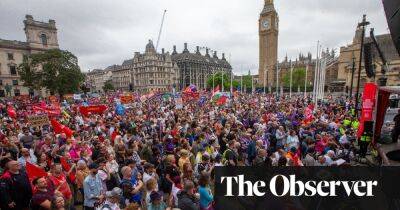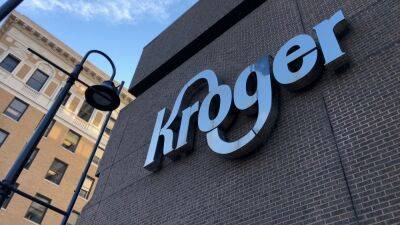UK pay falls at fastest rate for more than a decade
Average wages in the UK are falling at the fastest rate for more than a decade as annual pay growth fails to keep pace with the rising cost of living.
The Office for National Statistics said annual growth in regular pay, excluding bonuses, fell by 2.2% in the three months to April after adjusting for its preferred measure of inflation – the biggest fall since November 2011.
Average total pay, including bonuses, rose slightly by 0.4% thanks to a boom in payouts in the finance sector.
British households are facing an intense squeeze on living standards as earnings growth fails to keep pace with soaring energy bills and the rising cost of a weekly shop, with inflation at the highest rate since the early 1980s.
However, workers in some sectors, mainly in private sector jobs in finance, IT and business services, are benefiting from stronger pay growth amid the lowest rates of unemployment for 50 years and record job vacancies.
The ONS said a sharp rise in City bonuses helped growth in average total pay – including bonuses across the economy – to reach 6.8% in the three months to April before inflation is taken into account. Average regular pay, excluding bonus payments, rose at 4.2% before inflation.
Highlighting the uneven impact of the cost of living crisis, amid the threat of strike action on the railways and other industries amid bitter pay disputes, average pay in the public sector rose by just 1.5%, compared with 8% in the private sector.
Analysts said tight conditions in the labour market were helping to lift pay growth before inflation is taken into account, with the latest figures revealing a fresh rise in the number of vacancies across the economy to a new record high of 1.3m.
Unemployment rose slightly month on month to
Read more on theguardian.com
















